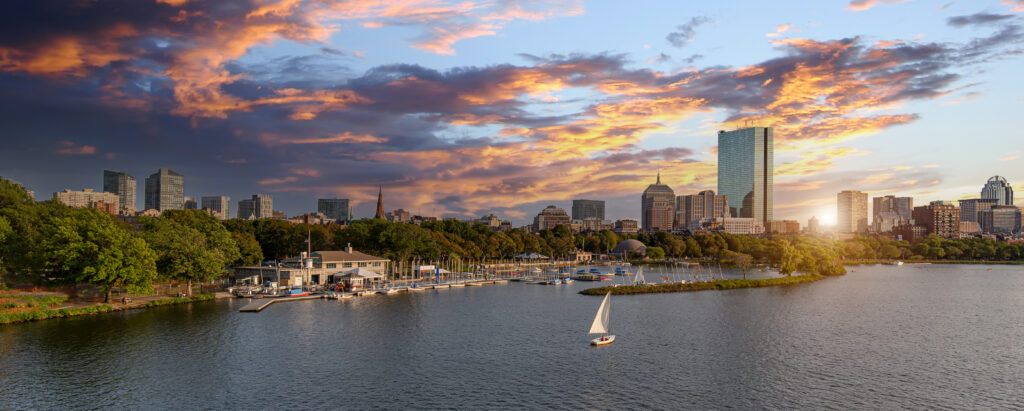Skilled Nursing in Boston, Massachusetts: Search Near You, How to Pay, Licensing, Local Resources, Questions to Ask, Links and Resources
Skilled nursing in Boston, Massachusetts, provides comprehensive medical care and rehabilitation services for seniors in need of round-the-clock support. Massachusetts ranks 12th in the nation for assisted living, underscoring its dedication to high-quality senior care. Boston’s skilled nursing facilities are equipped with experienced healthcare professionals and modern amenities, ensuring a comfortable and supportive environment for recovery and long-term care.
Skilled Nursing Facility Communities near Boston, Massachusetts
Linden Ponds
Hingham, Massachusetts 02043
Brooksby Village
Peabody, Massachusetts 01960
New England Homes For The Deaf, Inc
Danvers, MA 01923
The Meadows
North Andover, MA 01845
New England Sinai Hospital Transitional Care Unit
Stoughton, MA 02072
The Commons Skilled Nursing & Rehabilitation
Lincoln, MA 01773
Leonard Florence Center For Living
Chelsea, MA 02150
Newbridge On The Charles Skilled Nursing Facility
Dedham, MA 02026
Brighton Rehabilitation And Nursing Center
Brighton, MA 02135
Alliance Health At Braintree
Braintree, MA 02184

About Skilled Nursing in Boston, MA
In Boston, Massachusetts, skilled nursing is defined as a level of care that provides 24-hour medical supervision and rehabilitation services for individuals recovering from surgery, illness, or managing chronic conditions. Skilled nursing facilities (SNFs) in Boston are staffed by licensed nurses, therapists, and healthcare professionals who deliver services such as wound care, intravenous therapy, physical therapy, and medication management. These facilities also offer personalized care plans tailored to each resident’s specific needs, ensuring both short-term rehabilitation and long-term care are handled with the highest level of expertise. The goal is to promote recovery, maintain health, and enhance the overall quality of life for seniors.
Considerations when looking for Senior housing in Boston, MA
There are 9 skilled nursing facilities in Boston, Massachusetts. The estimated population of Boston is 653,833 with 12.3% of that number being those ages 65 and older. In Boston, the summers are warm, the winters are very cold and snowy, and it is partly cloudy year round. Over the course of the year, the temperature typically varies from 23°F to 82°F and is rarely below 9°F or above 91°F.
Cities near Boston, MA
- Cambridge, MA – Northwest, 3 miles
- Somerville, MA – North, 3 miles
- Brookline, MA – Southwest, 4 miles
- Quincy, MA – Southeast, 10 miles
- Newton, MA – West, 8 miles
Pricing and How to Pay for Skilled Nursing
Paying for senior care depends on several factors. On average, residents can expect to pay $14,144 per month for senior living services. These fees encompass personalized care, engaging activities, and comfortable accommodations, ensuring a fulfilling retirement experience. Keep in mind these costs may fluctuate depending on factors such as location and facility amenities.

Paying for Senior Living and Care will vary depending on a few factors. For instance, the level of care needed; the income and savings of the resident; the state and location of the community; or if the resident is a veteran. In the United States there are over 400 programs that may offer some monetary relief for senior care, but often the majority of costs are covered by private funds and family assistance. These funds come from our Federal, State, and Local Governments.
It is important to take your time when exploring payment and coverage options.
Private pay – YES:
- Many families pay for assisted living with private funds.
- Private pay can be a combination of retirement funds, personal savings, and pension payments.
- Family members may contribute funds to pay for assisted living or other senior housing and care.
Medicare -MAYBE:
Medicare will TYPICALLY cover Skilled Nursing (SNF) care ONLY under these factors:
- People 65 years and older and individuals with end stage renal disease are eligible for Medicare benefits, no matter their income.
- Coverage is meant for people in need of short-term care.
- The person has Medicare Part A, and has available days left in their benefit period. The person has a qualified hospital stay. (3 consecutive midnights or more)
- The individual must enter SNF within 30 days of leaving the hospital.
- The person’s doctor has ordered inpatient services at a skilled nursing facility.
- The individual must need and receive the skilled care daily. The care provided must be care that the person can only receive in a SNF.
- The person needs skilled services because of an ongoing condition or a new condition that started while in a SNF for treatment of an ongoing condition.
- The skilled services must be reasonable and necessary for the treatment of the condition.
- You must receive the care in a Medicare certified SNF.
Medicaid – MAYBE:
Medicaid can be a payer source if the patient needs both care and has a financial hardship based on the individual state criteria. Eligible participants include: low-income adults, elderly adults and people with disabilities. The program is funded jointly by each state and the federal government; and national guidelines are in place do decipher how states must spend Medicaid money, but with allowances toward the guidelines. Every state has their own individual Medicaid assistance program. Each state determines what levels of care will be covered by Medicaid, who is eligible, and how much the state will reimburse the care community.
- Skilled nursing falls under Medicaid’s Nursing Facility Services.
- People who are eligible for Medicaid must meet the state criteria for skilled nursing care.
- The state of residency must abide by federal law and regulations when setting their skilled nursing care requirements.
- The patient meets the state guidelines for income and asset limits.
If you are unsure whether you qualify for Medicaid, you should apply. You may be eligible depending on your household income, family size, age, disability and other factors.For a clearer understanding on coverage contact your State Health Insurance Assistance Program.
Long-term Care Insurance – MAYBE:
Long term care insurance is a great way to pay for assisted living, and planning ahead is important when considering how to pay for senior housing and care. Nearly 75% of people over the age of 65 will require long-term care services at some point, so naturally, buying into long-term care insurance when a person is in their 50s and 60s is the most common time to do so.
- Long-term care insurance helps cover the costs of chronic medical conditions.
- Individuals and couples with the ability to pay into long-term care insurance have the advantage of a head start in allocating funds for senior care.
Veteran Aid and Assistance – MAYBE:
This benefit is available to some military veterans and surviving spouses who live in an assisted living community and those who have in-home care.
- There are specific guidelines, but a veteran may qualify for as much as $2,050 each month.
- A veteran with a sick spouse may be eligible for $1,600 per month.
- If a veteran has passed, their surviving spouse can qualify for $1,300 per month.

Questions to ask a skilled nursing facility
- Is the facility licensed?
- Has the facility’s license ever been revoked?
- Is the facility Medicare/Medicaid certified?
- What types of insurance is accepted?
- Are all specific medical needs able to be met?
- What services are offered?
- What is the rate for basic care?
- Are any reviews available to be seen by the public?
- Are protocols in place to ensure healthy, balanced meals?
- What if an individual has specific dietary restrictions, can they be met at the facility?
Additional questions and inquiries to ask skilled nursing facilities
- What should a new resident (patient) bring with them?
- What is the difference between skilled nursing and assisted living?
- What happens in case of an emergency?
- Can the family pet visit the resident?
- What is the level of privacy?
- What are the available social activities?
- What is the hours for family visits?
- Can patients request special meals for dietary needs?
- Are skilled nursing facilities connected to hospitals?
- How big are the rooms?
- What are the training requirements of skilled nurses?
Local Hospitals and Healthcare Providers in Boston, MA
Massachusetts General Hospital
- Address: 55 Fruit St, Boston, MA 02114
- Phone Number: (617) 726-2000
Brigham and Women’s Hospital
- Address: 75 Francis St, Boston, MA 02115
- Phone Number: (617) 732-5500
Beth Israel Deaconess Medical Center
- Address: 330 Brookline Ave, Boston, MA 02215
- Phone Number: (617) 667-7000
Tufts Medical Center
- Address: 800 Washington St, Boston, MA 02111
- Phone Number: (617) 636-5000
Boston Medical Center
- Address: 1 Boston Medical Center Pl, Boston, MA 02118
- Phone Number: (617) 638-8000
Local Resources and Links – Massachusetts
Central Massachusetts Agency on Aging seeks to outreach to older persons and their caregivers, hoping to educate them on services and programs that are meant to serve and assist them to remain safely and securely in our communities.
Age Strong Commission As an AAA, the Commission provides funding to community partners to provide services to seniors in the neighborhoods. The Commission also provides direct services to seniors such as advocacy, information and referral, transportation, volunteer opportunities and cultural and social events.
Executive Office of Elder Affairs State Agency that contracts with local service providers.
Greater Springfield Senior Services, Inc. is an Area Agency on Aging (AAA) and Aging Services Access Point (ASAP) providing services to help preserve the independence, and quality of life of elders and disabled persons desiring to remain within their own.
Eldercare Locator This is a great resource to search for specific care in specific counties and cities. This database is a nationwide resource that connects older Americans and their caregivers with trustworthy local support resources. Connect with services such as meals, home care or transportation, or a caregiver education or respite from caregiving responsibilities. The Eldercare Locator is a public service of the Administration on Aging (AoA), an agency of the U.S. Administration for Community Living.
Medicare provides a search feature to find & compare providers near you, most senior housing and care providers are included on CareAvailability.com. Find & compare plans in your area. Determine if you qualify for premium savings
Medicaid offers information on how to apply for Medicaid, eligibility criteria, links to local state offices, and additional resources
The Alzheimer’s Association is the leading voluntary health organization in Alzheimer’s care, support, and research. Whether you are living with Alzheimer’s or caring for someone with the disease, information and resources are available.
Search other areas for skilled nursing
Not finding what you’re looking for? Take a look below.
